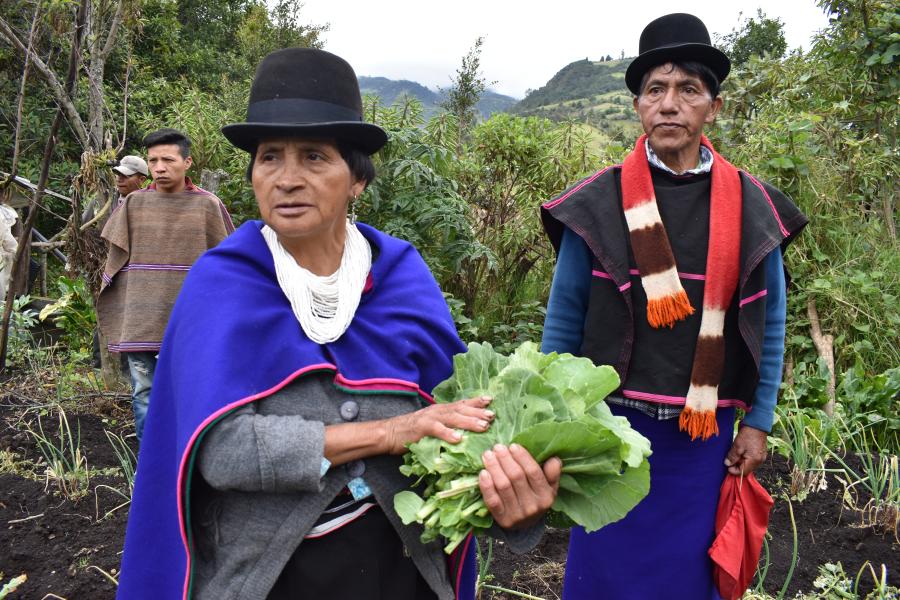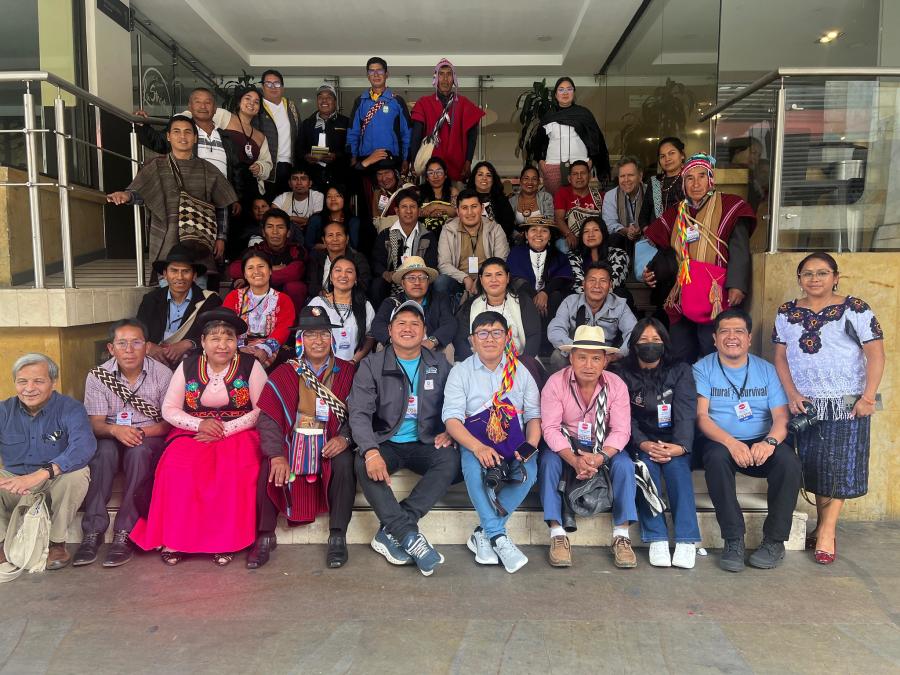
Jason Campbell grew up off the reservation and credits his parents with setting him up with a deep respect for education: “My earliest memories are when both my mom and my dad were working full time and working on their degrees. Both of my parents were serviceoriented to the community around them,” he recalls. Their influence carries through in Campbell’s work on nation building strategies, a reflection of educative capacity building for leadership in tribal communities.
After earning his undergraduate degree, Campbell went into literacy work. “That work provided a framework that specifically targeted Native communities. Being able to refine the engagement with the Native communities on a very core level around reading and literacy with the youth in the community is a pretty special place,” he says. Campbell also spent time in Washington, D.C. doing legislative work. He cites the stark statistics of a 50 to 80 percent dropout rate for Native high school students on reservations, and the shrinking funnel of students that go on to higher education to earn a four-year degree or a graduate degree. “The pool of individuals that every tribal nation has as successors for leadership positions with both the appropriate academic and experiential background is very rare,” Campbell says. “I was compelled to carry out that literacy work for as long as possible, knowing that the better conditions starting in elementary school on reservations, the higher the probability that in the next generation, leadership will have the background it needs for appropriate self-determination and nation-building perspective.”
Campbell also credits his legislative work for providing a window into a larger economic opportunity for tribes. While working on his MBA, which focused on American Indian entrepreneurship, Campbell worked on a housing model that covered “everything from home buyer education and credit repair, all the way through the home buying process to support after the home has been purchased.” At the same time, an opportunity came up through the US Social Investment Forum in D.C. with the Indigenous Peoples Working Group, where Campbell was introduced to socially responsible investing. In 2009 he was awarded a scholarship to take a certified financial planning course. “That peaked my interest because it was directly in line with the challenges on reservations of having adequate credit scores to get lending at a reasonable enough rate to buy housing—if they can find housing. It was a way to help tribal families with wealth creation and wealth preservation,” he says.
Next was learning the social investment financial world at Boston Common Asset Management. There, he engaged in shareholder advocacy specific to mining corporations, an issue close to home as the Spokane Tribe has been dealing with the devastating aftermath of uranium mining on tribal lands since the 1950s. Newmont Mining, which operated the infamous Midnight uranium mine, never bothered to clean up the site, which is now a $200 million EPA Superfund site. The resulting contamination led to high cancer rates and other diseases, as well as contamination of water, sacred sites, medicinal plant gathering sites, and elk calving grounds. Campbell engaged Newmont on social responsibility with the Spokane Tribe, as Newmont, which was committed in principle to the UN Declaration on the Rights of Indigenous Peoples (and specifically the right to FPIC), was not following its own protocols.
“Through the Indigenous Peoples Working Group, I started engaging with Newmont in panel discussions specifically addressing FPIC and how they can follow their governance to match the Spokane Tribe’s values, and how we can produce a better outcome at lower risk for their shareholders. Now we have a negotiated community liaison position specific to the superfund construction cleanup. If there are concerns, we can address the corporation, and it gives us a mechanism that ultimately gears us as a community to provide or withdraw consent on the activities happening specific to the the cleanup,” Campbell explains.
The Spokane Tribe has also been working with the Colorado University Law Clinic to develop a tribal FPIC protocol. “We had educated the Spokane tribal business council to where they could commit to the path of developing the FPIC policy themselves. And that’s really when the work started. [Midnight mine is] a legacy site that was agreed upon decades ago that produced all of this negative impact, and we can’t go back in time and withdraw consent on that. But we can look at our business code and address the question of how do we incorporate our historic cultural values with this FPIC framework in a manner that’s reflective of business practices and the licensing process so that we can address all of our strategic relationships as we move forward, not just with the superfund site, but with all economic development.”
Campbell continues: “Tribal nations in the US really haven’t experienced financial wealth until the last 15–20 years. For the first time in their economic history of the tribe, they’re getting attention. They’re just so happy to be at the table getting attention that they’re not making the connection between what their values are and who their strategic partners are. It’s not good enough that we’re at the table and that people are courting us. We’re in the driver’s seat, and we’re going to demand that our entire value chain and all of our strategic partners are going to match what our values are, otherwise we’re not going to do business with them.”
Citing the Spokane Tribe as an example, Campbell says, “In the Northwest, if tribes have a convenience store, they have been courted by Chevron and Texaco. Tribes are so happy to be courted by these big oil companies that want to help them start convenience stores and fuel stations that they don’t bother to research their global impacts to know how egregious their activity has been with other Indigenous communities globally. We have to start incorporating a supply chain that is going to reflect best practices of all of those environmental, social, and governance screens globally. Ultimately it is going to lead to a more sustainable model for the Spokane Tribe.”
Campbell also mentions that most reservations are food deserts. “Our grocery store on the reservation is not the source of health and vitality that we would like it to be. So we’ve started working with the CEO of Spokane Tribal Enterprises to identify who reflects our cultural values. Now we have a strategic partnership with Whole Foods, where they are directly coming to the reservation, helping us develop our capacity on all systems related to food access [including] the physical structure of the store, inventory systems, and also the people systems.”
Campbell says that this partnership brings the Tribe one step closer to achieving food sovereignty. “Whole Foods is going to help us develop entrepreneurs to supply produce and develop our fish hatchery to supply local fish. That’s where socially responsible impact investing comes into play in terms of business development. We are now requiring all of our business partners, all of our strategic partners, value chain partners, and supply chain partners to reflect our values as a community.”



